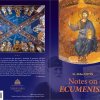A great man is one who collects knowledge the way a bee collects honey and uses it to help people overcome the difficulties they endure - hunger, ignorance and disease!
- Nikola Tesla
Remember, remember always, that all of us, and you and I especially, are descended from immigrants and revolutionists.
- Franklin Roosevelt
While their territory has been devastated and their homes despoiled, the spirit of the Serbian people has not been broken.
- Woodrow Wilson
Latest Articles
- Crafting Pišanice - Serbian Easter Eggs with Natural Dyes
- From Nicaea to Today: The Enduring Legacy of Synodality and Unity in the Church
- The Role of the Deacons in the Church
- The Circle of Serbian Sisters
- Vinka Ellesin
- Богородица као екстатично биће
- Bishop Maxim's Homily During the Assembly of Bishops XII Opening Liturgy
- Leon Joseph Lysaght Jr.
- Olga Gradojevich
People Directory
Bishop Jovan (Mladenović)
(1994–2002)The Divine provision brought the spiritual father of the Monastery Studenica, Bishop Jovan, to continue the work left by the equally most esteemed and humblest spiritual father of the Monastery Hilandar, Bishop Chrysostom.
As an accomplished monastic with the spiritual wealth he attained in the Studenica Monastery, he enriched his flock and clergy. Very soon he gained respect and confidence of his clergy and the faithful.
Bishop Jovan was born in 1950 of father Radojko and mother Stana Mladenović in the village of Dobrace, near Arilje, Serbia. He finished elementary school in his village. At the age of twelve, he went to the Klisura Monasteiy where he remained for one year and then went to the Studenica Monastery. He attended the monastic school in the Ostrog Monastery from 1967 until 1969. He was ordained a hierodeacon in the Studenica Monastery on April 25, 1971. He retained his baptized name of Jovan. Rt. Rev. Vasilije, Bishop of Žiča ordained him as hieromonk in 1973. He graduated from St. Sava Seminary in Belgrade in 1974 and from Theologcial College in Belgrade in 1980.
Read more ...Publishing
Notes On Ecumenism
Written in 1972 by St. Abba Justin Popovich, edited by Bishop Athanasius Yevtich, translated from Serbian by Aleksandra Stojanovich, and proofread by Fr Miroljub RuzichAbba Justin’s manuscript legacy (on which Bishop Athanasius have been working for a couple of years preparing an edition of The Complete Works ), also includes a parcel of sheets/small sheets of paper (in the 1/4 A4 size) with the notes on Ecumenism (written in pencil and dating from the period when he was working on his book “The Orthodox Church and Ecumenism”; there are also references to the writings of St. Bishop Nikolai [Velimirovich], short excerpts copied from his Sermons, some of which were quoted in the book).
The editor presents the Notes authentically, as he has found them in the manuscripts (his words inserted in the text, as clarification, are put between the slashes /…/; all the footnotes are ours).—In the appendix are present the facsimiles of the majority of Abba’s Notes which were supposed to be included in his book On Ecumenism (written in haste then, but now significantly supplemented with these Notes. The Notes make evident the full extent of Justin’s profundity as a theologian and ecclesiologist of the authentic Orthodoxy).—The real Justin is present in these Notes: by his original language, style, literature, polemics, philosophy, theology, and above all by his confession of the God-man Christ and His Church. He confesses his faith, tradition, experience and his perspective on man, on the world and on Europe—invariably in the Church and from the Church, in the God-man Christ and from Him, just as he did in all of his writings and in his entire life and theologizing.
Latest US News
- Волт Богданић: Американац српског порекла добитник три Пулицерове награде за истраживачко новинарство
- The American Srbobran - Building a Partnership with the Library of Congress and Institutions in Serbia
- „Американски Србобран“ унапређује сарадњу са Конгресном библиотеком у Вашингтону и институцијама у Србији
- Преминуо чувени амерички песник српског порекла Чарлс Симић
- Јован Дучић међу великанима у кливлендској башти
- Србија, Африка, Америка и Канада славе дан Теслиног рођења
- Документарац Немање Станковића приказан у Холивуду
- Tesla Rhapsody
- Saved by Beauty: Dostoevsky in New York
- Izložba likovnih radova o Dostojevskom
- Steve Popovich - the man who discovered Meat Loaf
- Odlazak čoveka koji je mnogo uradio za očuvanje sećanja na lik i delo Nikole Tesle
- Naš otac Balkanac za Ruse je smislio bijelu Coca-Colu
- Neverovatan poduhvat srpske pravoslavne zajednice u Americi
- Prva Srpkinja u finalu najveće evropske nagrade za pronalazače
Latest Serbia News
- На Станфорд листи 15 крагујевачких научника
- Naše postojanje skriva mračne i svetle strane, i veliko je umeće prepoznati ih i razlučiti
- Српска застава је најлепша на свету – на основу резултата анкете милион људи
- Недеља америчке културе
- Preminuo pisac Aleksandar Petrov
- Spomenik Branku Pešiću radiće srpski vajar iz Los Anđelesa
- Metropolitan Amfilohije buried in the Cathedral church in Podgorica
- Memorial prayer rite for Metropolitan Amfilohije in the Cetinje Monastery
- На данашњи дан рођен је Михајло Идворски Пупин
- Алекса је стигао до Принстона, али Математичкој гимназији се радо враћа
- Каубој православац и 40 Американаца посетили Косово
- Архив Војводине: Сведочанства времена у спомен на херојске претке
- Премијера „Теслиног народа“ на Коларцу
- Када се велики умови играју науком о подацима
- Američka vojska donirala je vrednu opremu klinici u Nišu



